The thing I like the most about multi-stage races, and what makes them different from other races, is the camp life. The Marathon des Sables camp forms a significant part of the whole race experience. Furthermore, how you manage yourself whilst in camp, and not just on the course, is important for your overall success in the race.
It is worth noting that how much time you have available to actually spend in the Marathon des Sables camp varies greatly depending on your race time. Of course top runners have a lot more time, arriving to bivouac at lunch time. Walkers may arrive as the sun is setting and it’s nearly bed time, greatly reducing the time available for foot care, e-mails, dinner etc. Bear this in mind when you plan your race.
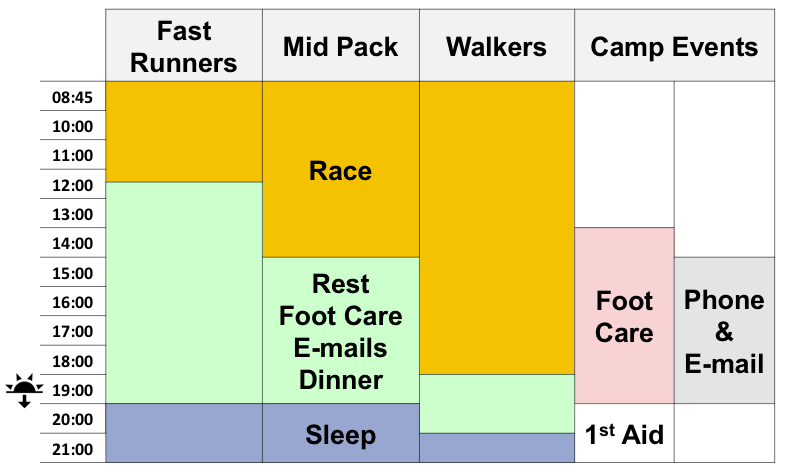
* Disclaimer: COVID could alter the travel logistics as well as Marathon des Sables camp routines. Always check the latest information from the organisers. This article is based on pre-COVID life!*
Arriving to Marathon des Sables Camp
You will arrive to the MDS bivouac on Friday and the race starts on Sunday. At least it has been that way in the past. Firstly, please don’t be that one person who every year loses their luggage. Pack all you need for the race in your hand luggage. And who cares if you turn up at the airport wearing gaiters? At least in London and Paris there will be hundreds more looking just as peculiar!
The journey to MDS bivouac is by coach and typically takes 6 hours or more. You get water and a packed lunch but if you would like any extra snacks bring this yourself. Also bear in mind that there are no charging facilities available on the coach nor in bivouac. If you are reliant on your phone or other electronics before the race, bring a portable charge unit.
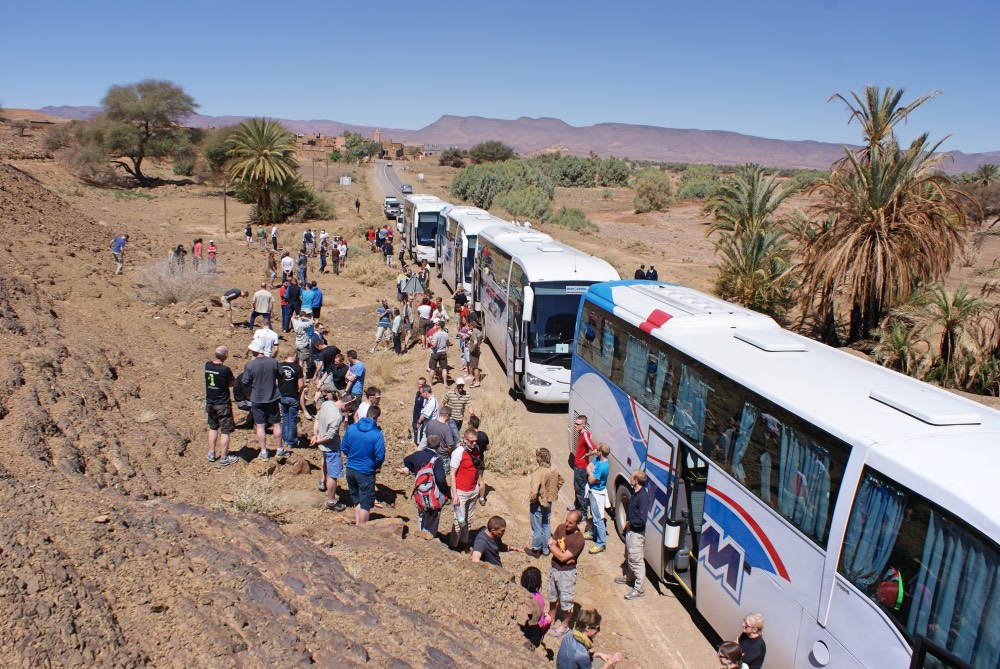
Tent allocation is usually subject to a lot of confusion, particularly for people from the nations with the largest representation. The procedure changes every year. However, I have always been able to stay with a group pf people decided beforehand. It is pretty difficult to locate people in bivouac and you may arrive in the dark. Therefore, have your head torch handy, and if you want to be in a tent with specific people, make every effort to travel together on the same coach. Alternatively, have a way of communicating so that whomever arrives first can let the others know where to go.

Remember to bring toilet roll not just for the race, but also for the time pre-race. If you are unsure about any items of your kit, for example “do I need a spare base layer?”, “do I need a sleeping bag liner?”, you do have one night in bivouac to judge the temperature somewhat and decide.
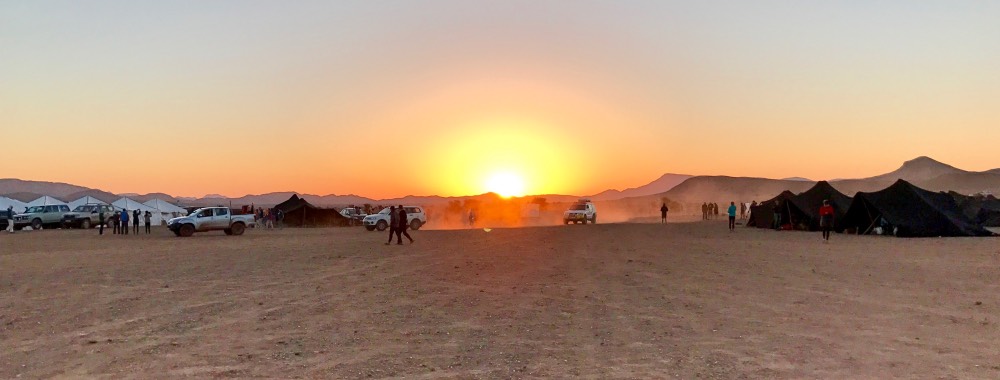
Saturday is the day for kit check and when you hand in your luggage. Typically kit check is according to a predefined schedule, based on race number, and can be as early as 8:30am or in the afternoon. A board at teh admin tent will typically announce the times. You first hand in your luggage, and you then go through kit check.
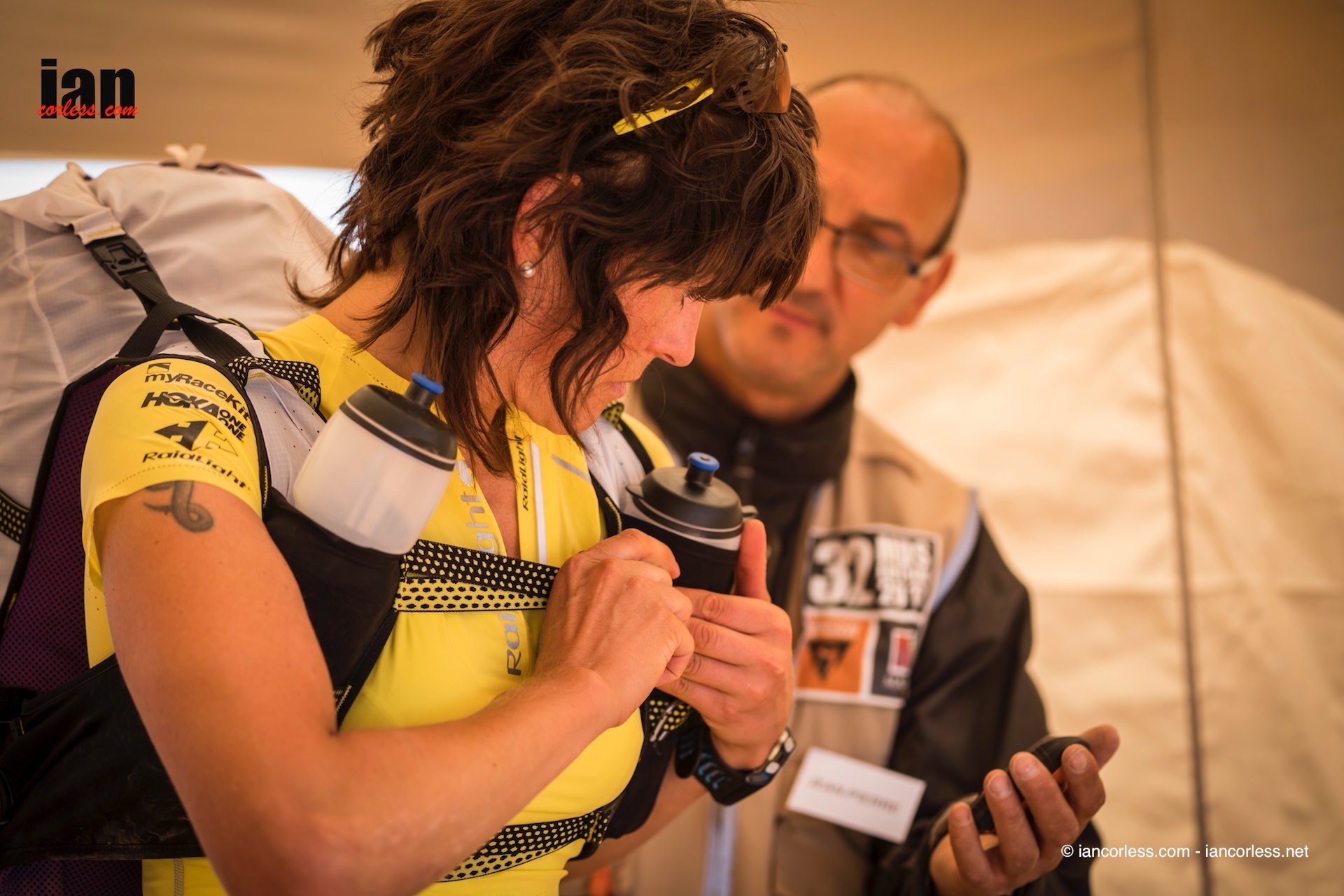
As the kit check procedure usually is cause for much confusion, please note the following:
- You have NO access to your luggage after kit check until the end of the race on return to Ouarzazate.
- You can NOT dispose of items during the race and receive them back at the end. If you bin anything, or give it away, it is gone.
- You wear your race gear from this point onwards. That is unless you have packed any extra clothes that you are happy to donate to the berbers once the race starts the following day.
- This is where the race staff check the weight of your backpack. It should adhere to the minimum weight defined in the race rules. At the point of writing this is 6.5kg. This includes all your food including Day 1 breakfast. However you will eat your Day 1 breakfast before you start running.
- Salt tablets and GPS Spot tracker are normally added to your pack AFTER the weigh-in. You typically have been given the road book before though.
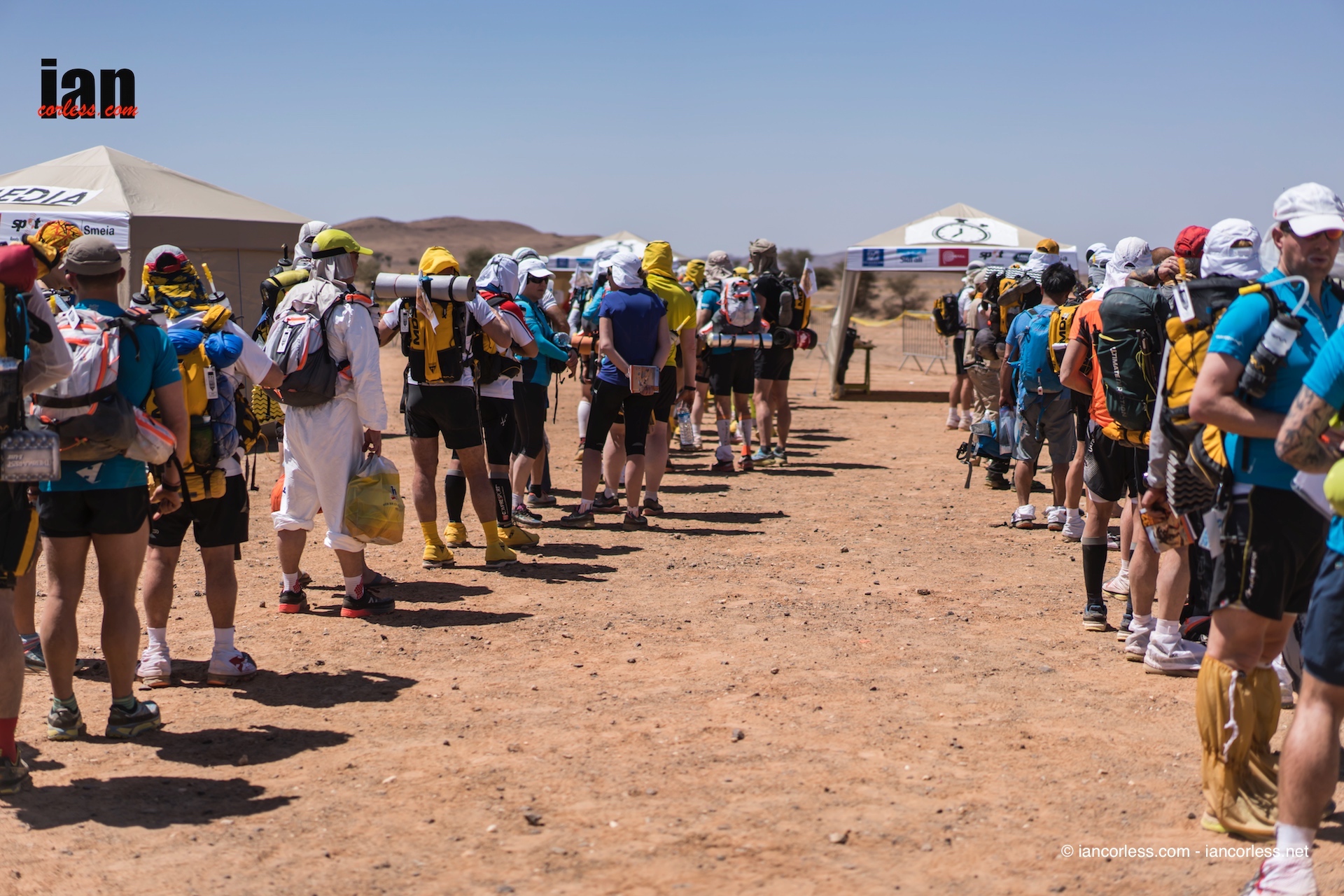
You get meals on Friday evening and Saturday. The self-sufficiency starts on Sunday which is the first day of the race.
Expect queuing for just about everything as there are roughly 1200 runners about, all needing toilets, food, kit check etc. However, usually things run reasonably smoothly.
My 7 Top Tips for Marathon des Sables Race Camp
1 – Be Organised
Your gear should be either on you or in your backpack. There can be sudden storms and if your stuff is scattered around it can quickly disappear. Not so much fun to run in one shoe, lose a water bottle or have your sleeping mat blow away – huh? Think about this particularly when you go to bed at night. Is everything secured so it can’t be swept away?
The sound of teh berbers taking down tents will wake you up at 6am. You may need to be at the start line around two hours later. This may seem like a lifetime but believe me: when your whole life resides inside a small backpack that you keep constantly packing and unpacking, this is no time at all.
Everything takes longer than you think
You need to prepare breakfast, eat breakfast, deflate and/or fold your mat, pack your sleeping bag, pack your gear, go to the toilet (possibly long queues!), put on sun cream, fix your race number, fix your gaiters on your shoes, organise your race snacks into the right pockets, collect water, fill your water bottles, check the road book, etc etc. Some time in the midst of all this the berbers will take down your tent whether you like it or not. They couldn’t care less if your stuff is scattered all over. If I have one tip for you it is to fix your feet the night before. In the morning you will have no time for this…
See my blog on preparing your shoes and feet here.
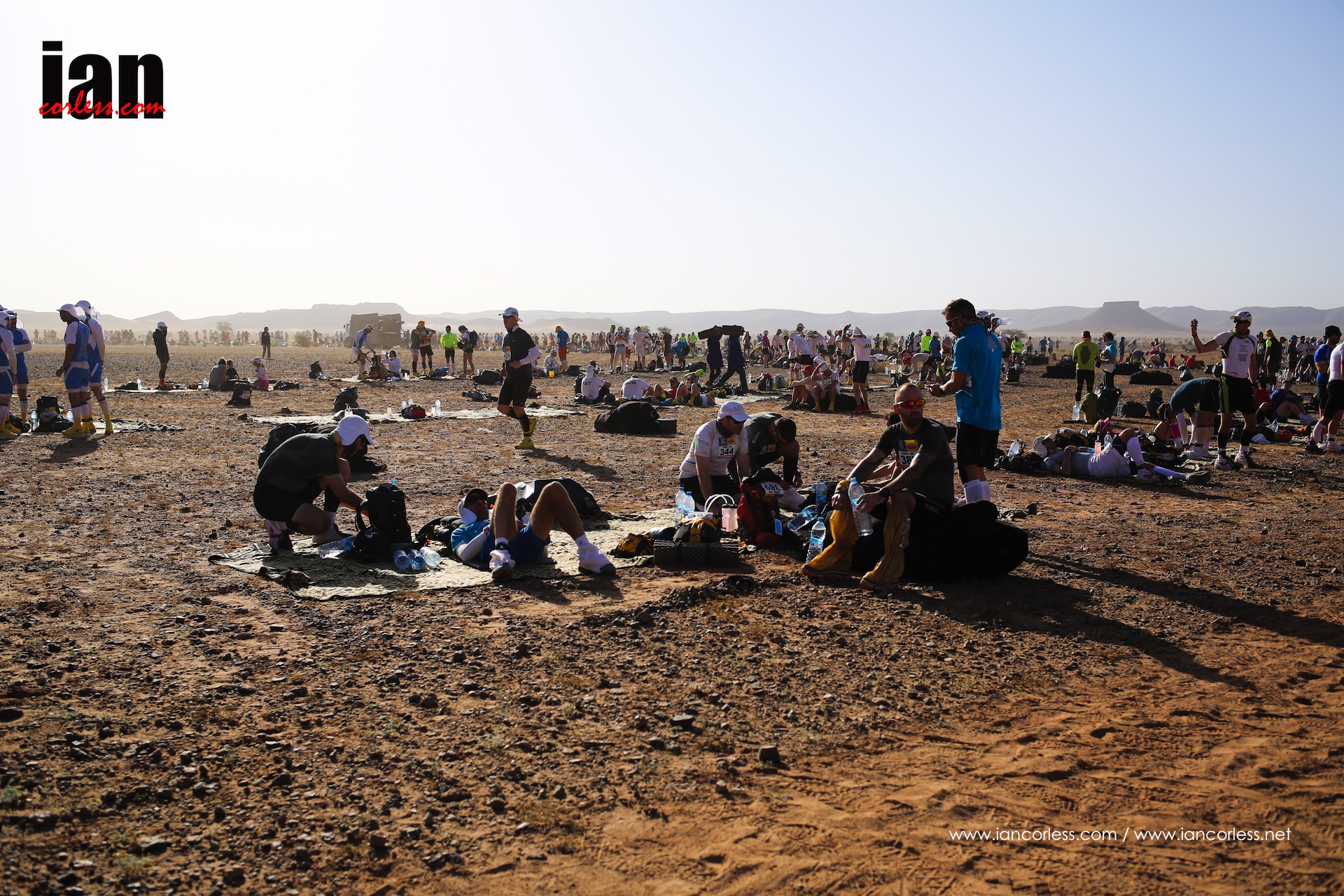
2 – Be Self-sufficient
MDS camp life is hard, really hard. The smallest tasks can turn to insurmountable obstacles when you are dehydrated, hungry, too hot and exhausted. Therefore, don’t try to help everyone else at expense of your own race. Particularly don’t make any promises about this beforehand. Remember, everyone signed up knowing that this is a self-sufficient race that was always going to be hard.
Help yourself first
Please note that I am not saying we shouldn’t be looking out for each other, of course we should. I am just saying that everyone needs to first look after themselves. It’s a bit like the safety briefing on an aircraft: “put your own oxygen mask on first, before assisting others”. The logic is simple. If you care so much for others that you forget about yourself, chances are you will become a liability as the environment is so extreme. You may also regret afterwards that you sacrificed your own race for other people. Everyone has a responsibility for being adequately prepared after all.
Be respectful of others
Equally, don’t be the needy person asking your tent mates for help with things you really should be doing yourself. For example fixing your blisters. Everyone will have enough to deal with just looking after themselves. It is unfair to ask people for unnecessary services as they may feel obliged to say yes. Know when you really need help (and you will receive it) and when you actually don’t.
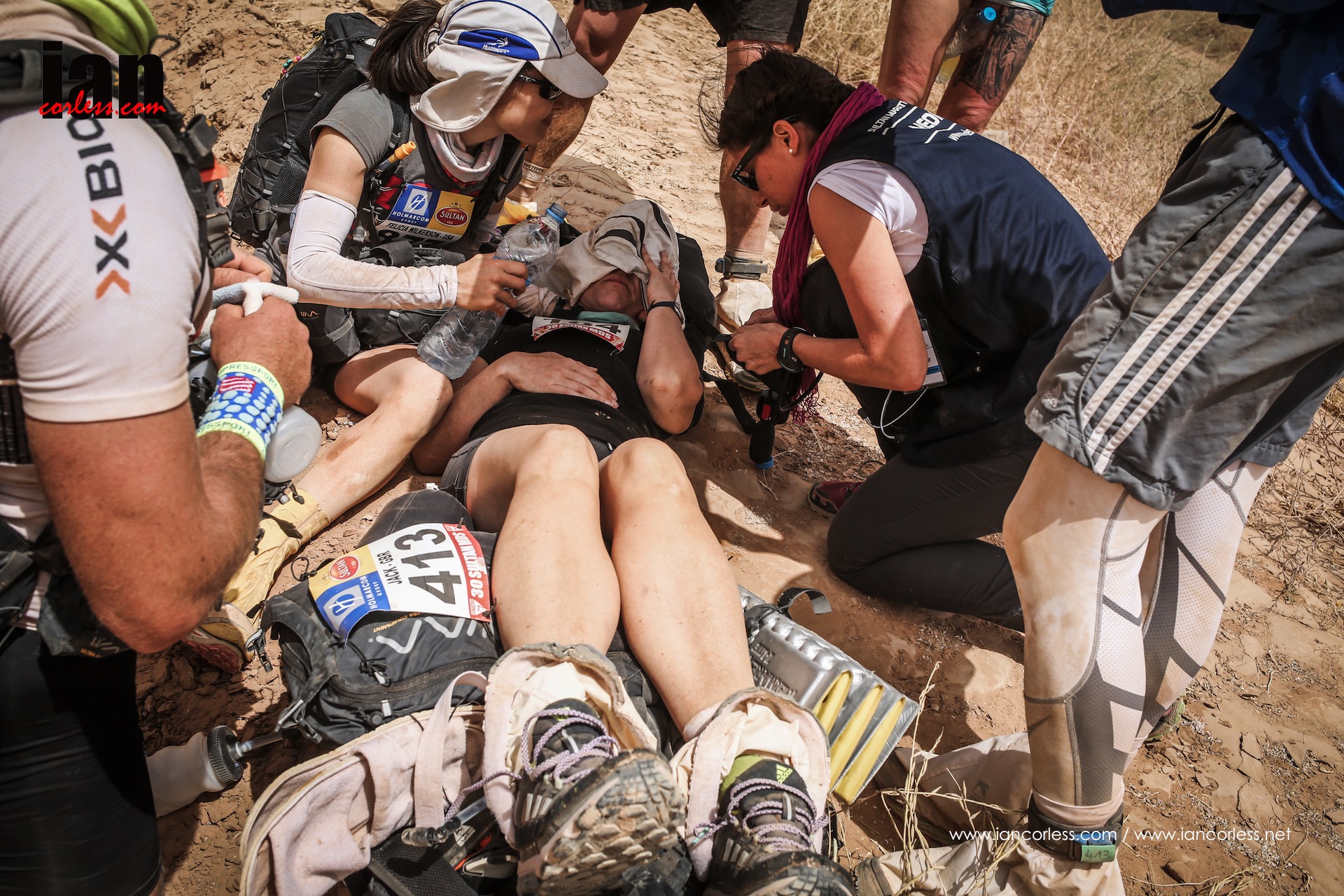
3 – Put Your Feet Up
If you have the luxury, get some rest once you finish the stage. Much of the success in a multi-stage race comes from your ability to recover. Focus on you, find a moment of rest and tranquility, and recharge your batteries for the next day.
This also means sleeping well. Make sure your sleep system is adequate (mat plus sleeping bag) and that you have something warm to put on for the evening and early morning. This could be a a down jacket, or perhaps a long sleeved top plus a light weight wind jacket.
Nights are not silent…
And, whilst you might imagine a silent, magical desert night under a black star filled sky, the reality is not that romantic. You are with 1200 runners, a few hundred volunteers, and sharing a rather small tent with 7 people. It will only be silent if you have ear plugs. Ear plugs on a string are a great invention. You are much less likely to lose them should they fall out.
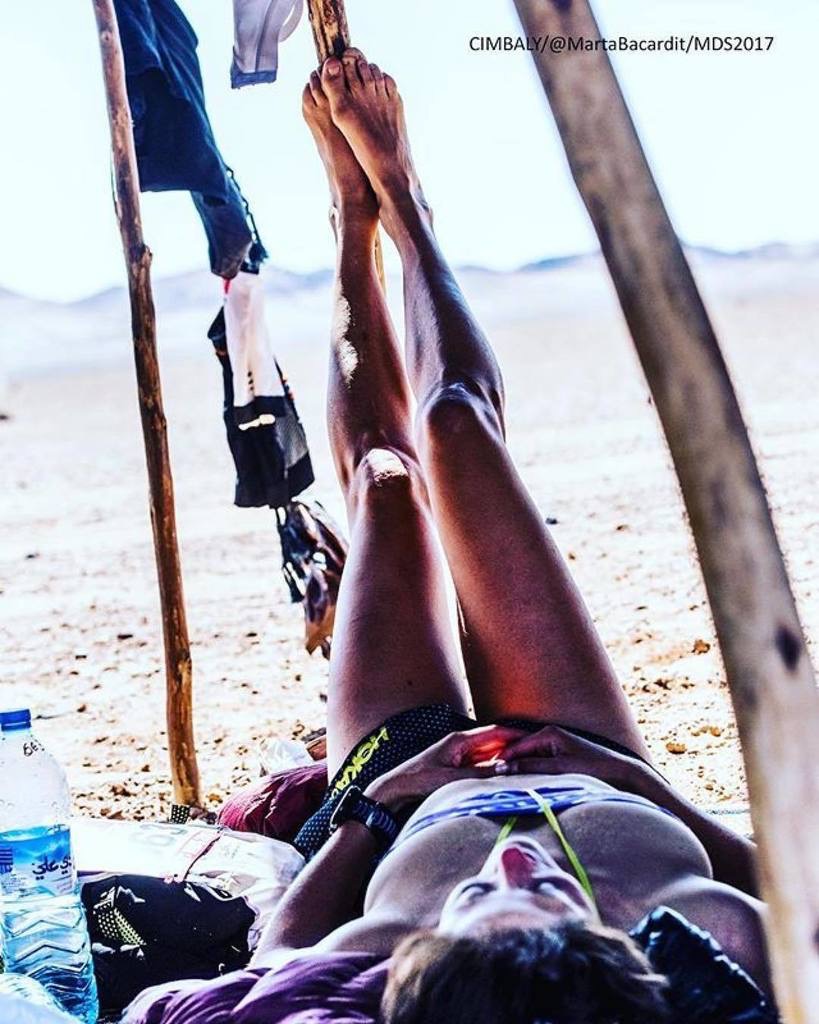
4 – Set the Right Expectations Upfront
Don’t promise your friends/family/partner that you will be in touch. You can send ONE e-mail at the time from the e-mail tent in the MDS camp to ONE recipient. You may need to queue, you may not be in the mood, you may be tired, you may be ill. If you send e-mails, let it be a bonus, not a must. Bringing your phone? If so, remember that it is not allowed to use it in MDS bivouac. Many people are there for the solitude so please respect that. Note that you may not have coverage for the majority of the race anyway. Why not take the very rare opportunity to be disconnected from everyday life for a week? Just have this magical time in the desert for YOU, not anyone else.
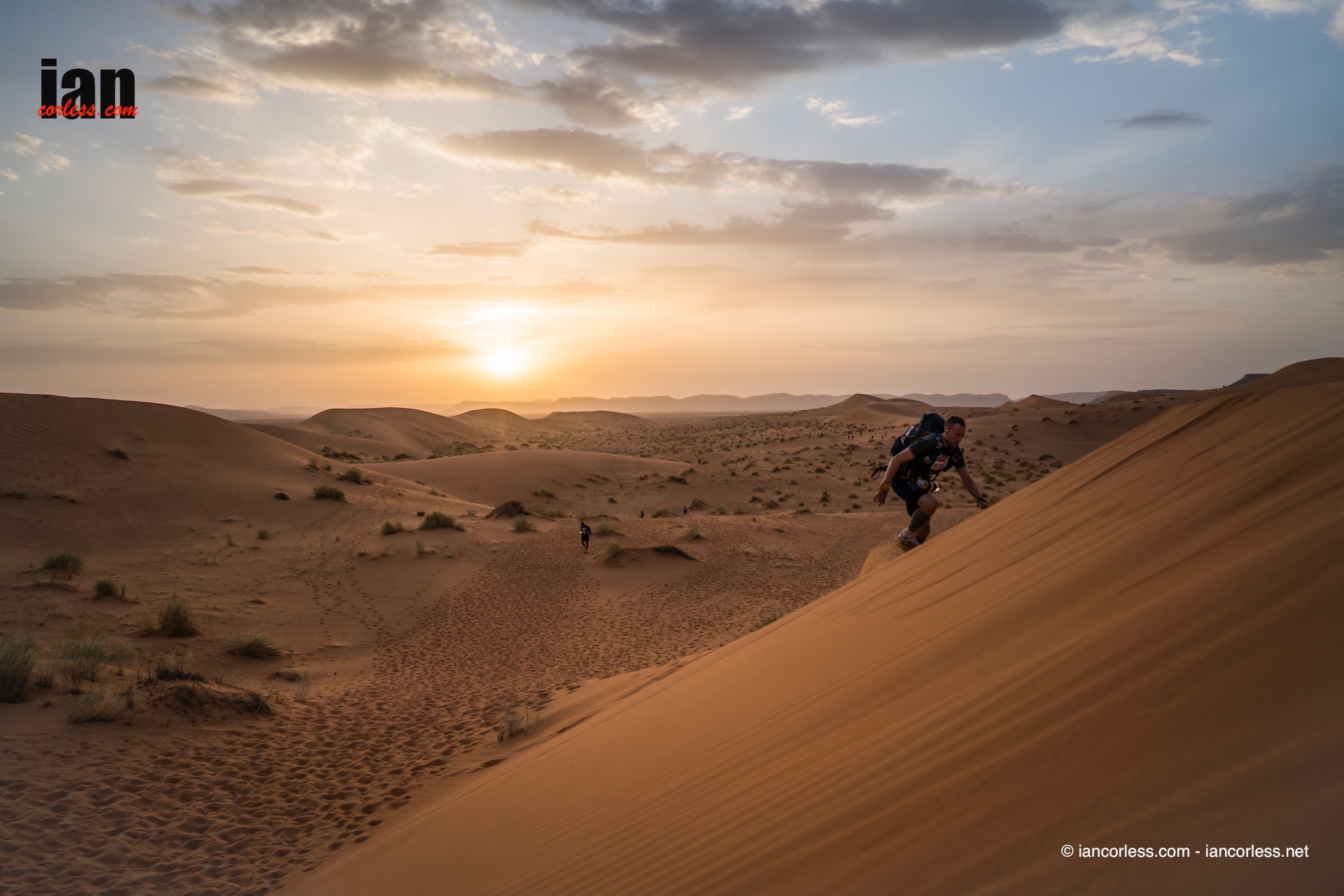
5 – Ask Everyone You Know to Send Messages
The messaging facility is absolutely wonderful. In the absence of having your mobile phone you can get messages delivered every day to your tent in the MDS camp. Just let all your loved ones know that they can message you and how. Instructions are typically available a few days before the race. This is a massive morale boost.
6 – Manage Personal Care in Bivouac
Keeping clean in the Marathon des Sables camp is extremely important to avoid germs and illness. It is relatively simple. Use hand sanitiser often and/or clean your hands with water and soap. It’s easy to bring a small piece of soap or some soap leaves. Use a long handled spoon for eating so you don’t get your fingers in the food. Avoid high fiving kids on the course. Always clean your hands before eating and after toilet visits.
7 – Be a Surviver
Someone recently said to me: “Poo in a bag??! I’d rather hold it for a week, I have done that before…” Frankly I think it would make for a rather uncomfortable race….
I have realised that many competitors struggle with the “survival” element of Marathon Des Sables. However this is really part of what makes the experience so great.
The wind will blow straight through the open tents in the MDS bivouac. Sometimes the tents collapse due to heavy winds. Toilet facilities are incredibly basic and often the scarcely scattered bushes provide a more attractive option. For women there are changing cubicles. However, despite instructions they get mistaken for toilets and quickly become unusable for their intended purpose.
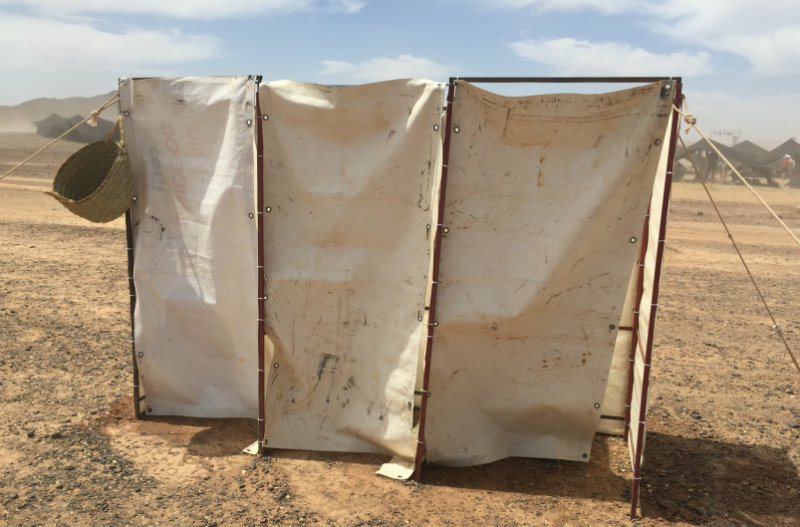
You might be cold at night. You might struggle to eat your food as your taste buds change and your body reacts to this new environment.
The contrast between Marathon des Sables camp and your comfort at home is striking. It’s a simple existence that makes you feel truly alive and helps you reflect on what is important in life. Approach it with a positive can-do attitude. Embrace it as a unique opportunity for self-reflection and personal development, and everything will be much easier.
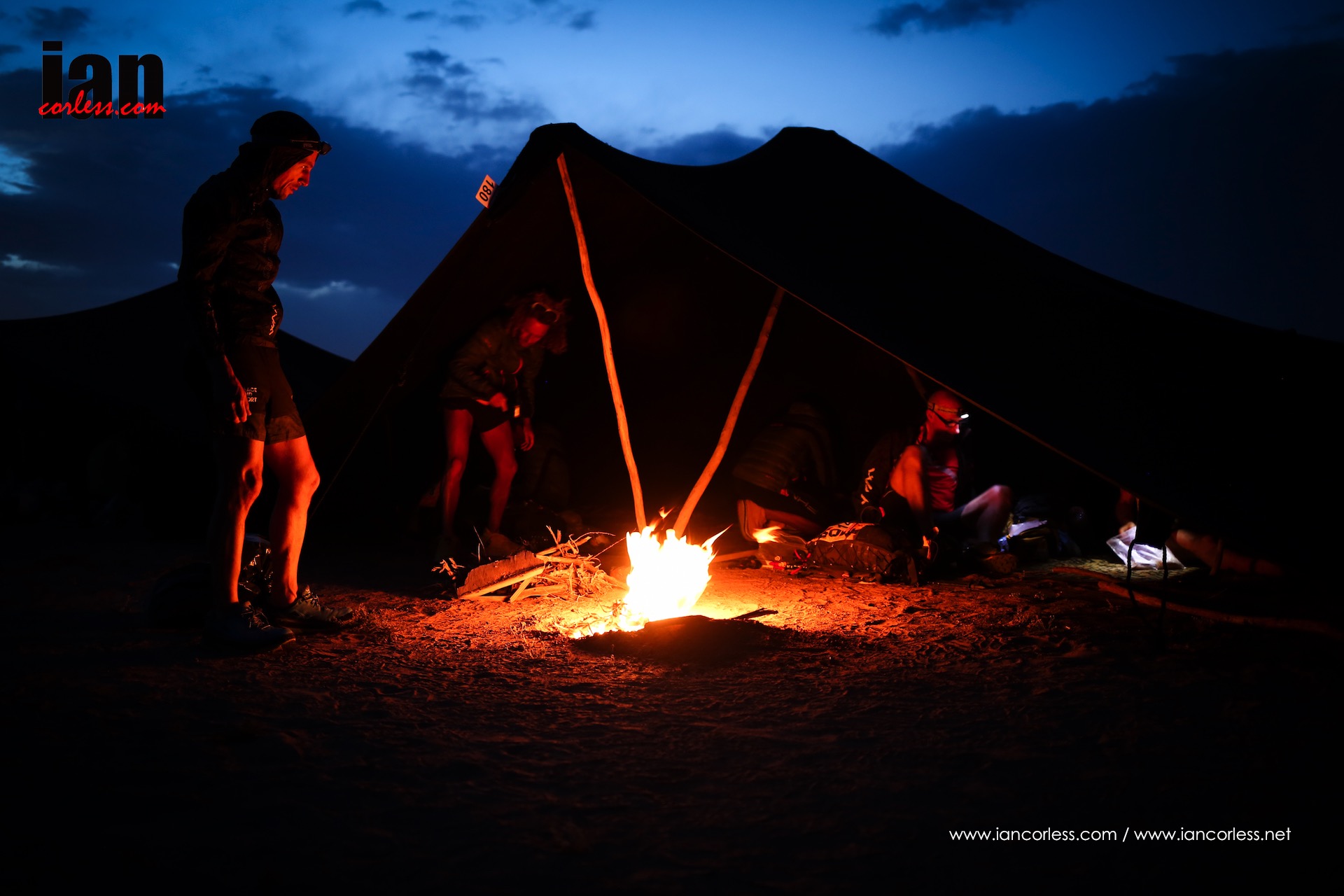
Disclaimer: This information about Marathon des Sables camp life is based on my personal experience from racing four editions of the Marathon Des Sables. It is not intended to replace official race rules or communication from the race organisers. It is your responsibility to always check the official and up-to-date information and race rules. Whilst I believe this information to be correct at the time or writing, I take no responsibility for failed kit checks, penalties or other problems as a result of you relying on the information in this article.
